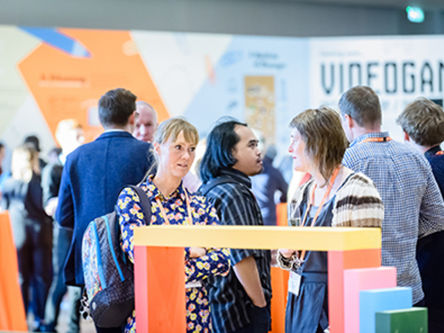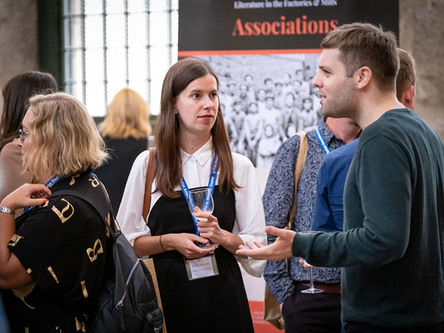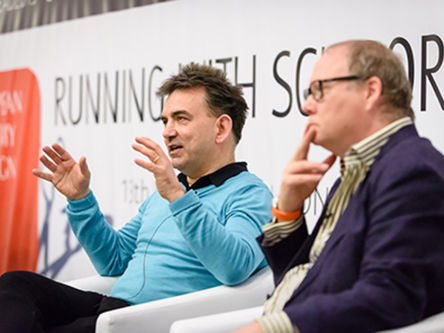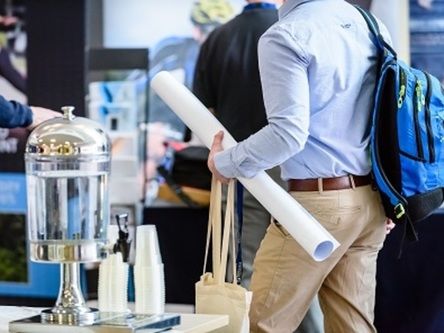No man – or event – is an island, says Dundee & Angus Convention Bureau’s Karen Tocher. And, with a dynamic conference destination such as the Dundee region, the positive ripple effect on the wider community shouldn’t be under-estimated.
Here are just a few examples as to how being a successful event destination can also support business and industry collaboration, both locally and on a more global scale.
The Dundee, Angus, Fife and Perthshire region is renowned for its four academic institutions as well as being home to some of the leading experts in their academic and industry fields. Only last month, six academics from the University of Dundee – four from the School of Life Sciences and two from the School of Medicine – were named amongst the world’s most influential academics.
From tech, digital and life sciences, to medicine, education, engineering, health, and the food sectors, this ‘hotbed’ of talent has made the Dundee region a world-class conference destination. And, with so much experience, skills, and academic as well as industry expertise right on our doorstep, it is only natural that there’s the opportunity for regional, national, and even international ‘overspill’ into wider spheres.
Dundee’s fertile environment for meaningful networking and innovation has consistently sown these seeds for longer-term industry collaboration. In numerous cases these partnerships, many honed as part of events held within the region as well as our Pathfinders initiative, have gone on to generate some significant, even life-changing, results.
In the early days of the pandemic, the University of Dundee worked on a range of Covid research projects within the networks it had created. Partnerships with NHS Tayside and the University of Glasgow swiftly helped to identify the proteins in the SARS-CoV-2 virus. At the same time, the Jordanstone College of Art & Design collaborated with a local textile company to produce medical scrubs for health workers. And one of the country’s leading lung specialists, Dundee University’s Professor James Chalmers, was appointed the Scottish lead of a major UK-wide study into the long-term health impacts of Covid-19.
Another exciting collaboration is between the region’s academic specialists and the medical industry. Abertay University has been directly supporting Dundee-based company Fertility Genomics to produce a revolutionary DNA kit which will be able to pinpoint in advance whether fertility treatments will work for a couple looking to use assisted reproduction techniques to conceive. This affordable, at-home test can help reassure couples, or potentially save them from undergoing invasive treatments that ultimately could prove unsuccessful.
Industry collaborations within the region have also directly supported local agriculture and farming businesses with ground-breaking initiatives with the potential for global impact. These include the James Hutton Institute, who will host the new International Barley Hub (IBH) and Advanced Plant Growth Centre (APGC) as part of a £700m investment partnership between the Government and the public and private sectors. The hub, which will use industry and science expertise to create solutions for the food and drink industry in the face of climate change, is set to open in 2024.
The humble potato will also benefit from Dundee and Angus’s academic drive to support local industry. Plans have recently been released for a Potato Innovation Centre, which directly results from this summer’s Potatoes in Practice 2021 conference held at the James Hutton Institute. The Innovation Centre is set to become a key player in the global drive to adapt sustainable production systems for an essential global crop to ensure it weathers our changing climate.
Finally, using region’s expertise in supporting industry collaboration can have an additional ‘pay it forward’ benefit for the next generation of academics and field experts.
One such example is an industry-wide consortium, supported by both the James Hutton Institute and the University of Dundee, to help create the agriculture sector leaders of the future. The consortium has recently won a £3.6m Collaborative Training Partnerships (CTP) award to fund a postgraduate training programme in sustainable agricultural innovation.
That equates to 30 PhD students who will then go on to become the new generation of leaders and creative thinkers in the food and farming system. And that is yet another powerful example of how we can support industry collaboration to effect positive global change.
Ends
-
Organising
Organising a conference
With a proven track record of staging world-class conferences, we deliver an exceptional delegate experience

-
Attending
Attending a conference
A warm Scottish welcome awaits our delegates from around the world

-
Impact
The impact of Business Events
Business Events facilitates and supports essential exchanges, integral to not only economic advancement, but societal development as a whole

-
Pathfinders
Pathfinders
Advancing social and economic progress for Scotland and the region of Dundee, Angus, Fife and Perthshire

-
Partners
Bureau partnership
Work with us to deliver outstanding experiences

-
News


